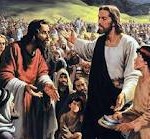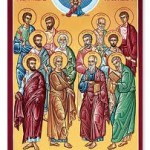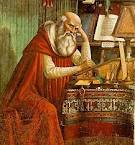Seventeenth Sunday in Ordinary Time – Cycle B
Reflecting on John 6: 1-15
We were there that day. We saw it with our own eyes. And we still can’t explain what happened.
It was close to Passover, so our family members had come all the way from Damascus for the feast. A huge number of Jews—we must have been five thousand at least—had crossed the Sea to see more of Jesus, who had performed many wonderful signs while he was in Jerusalem and Galilee.
I can’t believe we forgot to bring food. We were so enraptured by Jesus that when he left to go across the Sea we just got in boats and followed him. But by then it was too late to prepare the proper Jewish foods, since we were in the Gentile territories.
I thought we looked like the sheep in David’s psalm, the way we all rested in the green pastures. Yes, hungry sheep waiting for the Shepherd to feed us.
There was a boy there who had five barley loaves and two fish. The man they call Andrew asked him for them, and then gave them to Jesus.
It was just like the Passover! Jesus took the loaves, blessed them, broke them and gave them to us. But this I’ll never understand: unlike the matzo at Passover, this bread never ran out. And there were enough baskets left over to feed the twelve tribes of Israel!
We were all astonished. A number of us remembered how God had rained down bread from heaven all the years that our people sojourned in the desert.
Is Jesus another Moses? We don’t think so. There was just something about those loaves.
In what ways does Jesus fill you?
Every time I think about this story I bless my wonderful second-year teacher in the Biblical School, Gene Guiliano. Most of the words of this column came straight from him.
What would YOU like to say about this question, or today’s readings, or any of the columns from the past year? The sacred conversations are setting a Pentecost fire! Register here today and join the conversation.
I have come to light a fire on the earth; how I wish it were already burning (Lk.12:49).




